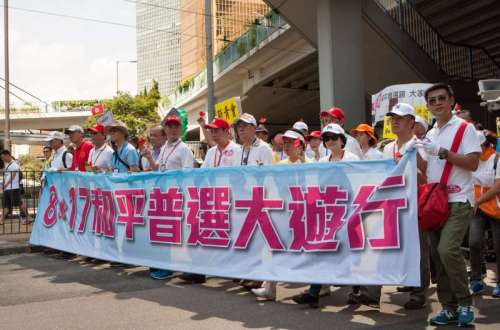
Thousands of protesters dressed in black marched through the streets of Hong Kong to call for democracy and express their opposition to Beijing’s decision to restrict the number of candidates who may run for government posts in the 2017 elections.
“Beijing has failed to keep its promise that the people of Hong Kong may have democracy,” said Benny Tai Yiu-ting, one of the founders of the Occupy Central movement, which includes democracy activists who are opposed to the Chinese government directives for reforming the election process in Hong Kong.
The demonstrators marched in silence through the main streets of the city carrying posters on which they called for new acts of civil disobedience as a way of confronting the decision on Hong Kong’s political future made in Beijing.
“What can the people of Hong Kong do? We have to continue moving forward with a campaign of civil disobedience,” said Tai during the march, adding that the citizens feel betrayed by the Chinese government.
Police said that about 2,000 sympathisers of Occupy Central movement turned out for the march, but organisers said the figure was more than 4,000.
The civil disobedience campaign was launched Aug 31 in response to the decision by the Permanent Committee of the Chinese People’s Assembly to approve universal suffrage for the Hong Kong government elections in 2017 but to only allow two or three candidates previously selected by a special government commission of 1,200 members to run for each post.
Sunday’s march is the latest in a series of confrontations between democracy supporters and those who support the Chinese government’s decisions on how to carry out electoral reform in Hong Kong.
During the transfer of control over Hong Kong from the British to the Chinese government in 1997 under the “one country, two systems” brand of government, it was established – without specifying a date – that universal suffrage would be implemented in the city.